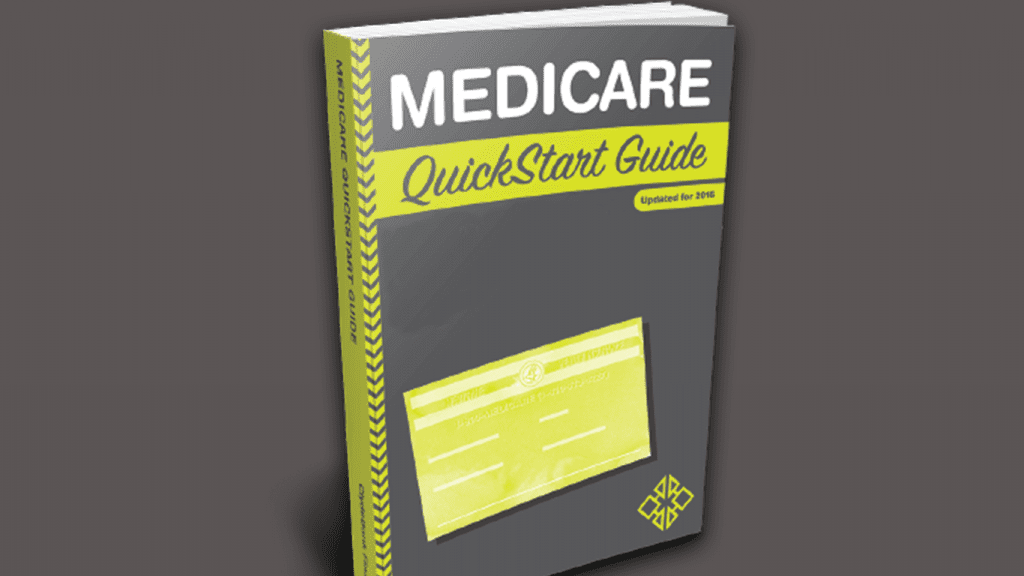Quality health insurance is an important component of a quality and healthy lifestyle. The Medicare program makes health insurance affordable for millions of Americans. If you’re close to reaching Medicare, you may need to know how enrollment works. In this short guide, we’ll review the basics of applying for Medicare, including when your enrollment is automatic and when you’ll need to apply manually.
When Is Medicare Enrollment Automatic?
What could be easier than automatic enrollment? Automatic enrollment is a common option for many people, which can make life much easier for you. You will be automatically enrolled in Original Medicare, Parts A and B, when either of these is true:
- You have elected to receive Social Security income on or before you 65th birthday
- You are receiving disability income from either Social Security or the Railroad Retirement Board for 24 consecutive months
When either of these cases applies to you, you’re Medicare enrollment will happen automatically. Your Part A and B will be effective on the first day of the month in which you turn 65. Or, in the case of disability, you’ll automatically enter Medicare on the first day of the 25th month you receive disability payments.
In most cases, enrollment in Medicare Parts A and B will be welcome. However, if you’re still working or covered by a spouse’s health insurance, you may want to delay taking Part B. In this case, you can simply follow the instructions provided to you from Social Security when you receive your card in the mail.
When Is Applying For Medicare Necessary?
In most other cases, you’ll have to apply for Medicare manually, especially Part B. The two most common reasons you’ll have to apply manually are:
- You’re not taking Social Security until after your 65th birthday – usually because your Full Retirement Age (FRA) is age 66 or 67, or because you’ve chosen to take your benefits after you’ve passed FRA.
- You worked past age 65 (or you were still covered by a spouse’s health plan) and now your coverage is ending and you want to enroll in Part B.
In both of these cases, the enrollment process is easy.
Enrolling In Medicare When First Eligible At Age 65
When you become eligible for Medicare due to turning 65, you have several options for enrollment. You can choose to enroll:
- Online at SSA.gov
- In-person at a Social Security office (if available, check with your local office to see if they’re seeing people in-office)
- By phone
You’ll be able to enroll in Medicare during a 7 month window of time called your Initial Election Period (IEP). Your IEP spans:
- 3 months before your 65th birthday month
- The month you turn 65
- 3 months after the month you turn 65
Your coverage will be effective on the first of the month you turn 65 if you enroll during the three months leading up to your 65th birthday. If you wait until the month you turn 65, or the three months after your 65th birthday, your effective date will be delayed.
Applying For Medicare When You Delayed Enrollment
Applying for Medicare when you’ve stopped working, or your spouse has stopped working, and you’re losing employer coverage is also very easy. If you already have Part A, and you probably will, you only need to enroll in Part B. When you already have Part A, you need to complete CMS Form 40B to get your Part B coverage.
You can complete this form and fax it to Social Security. You can mail this form to them as well; you may also be able to take it to a Social Security Office. Additionally, you can complete this form online through SSA.gov. You can click the link “Already Enrolled In Medicare” in this case.
Besides the Form 40B, you will also need to complete form CMS-L564. This form demonstrates that you were actively covered under a qualifying health insurance plan in lieu of Medicare. Your employer will need to sign this form. If you’re unable to get them to sign it, you can elect to provide proof of your coverage.
When you enroll in Medicare Part B after age 65 because you were covered by an employer plan, you’ll receive an 8 month Special Enrollment Period (SEP). The SEP will start when you leave your job, or your coverage ends, whichever is sooner.

Applying For Medicare Due To Health Conditions
If you’re diagnosed with either ALS (Lou Gehrig’s Disease) or End Stage Renal Disease (ESRD), you’ll be eligible to enter Medicare before you turn 65. These are special cases and your Medicare enrollment is semi-automatic.
It’s semi-automatic because you must first apply for Social Security Disability Income (SSDI). You can do this when you first receive your diagnosis. Once you’re approved for SSDI, your Medicare enrollment will become automatic. The entry dates are different for the two diseases:
- For ESRD, you usually start Medicare when you’ve been on dialysis for 4 months
- For ALS, your Medicare coverage begins when you start receiving SSDI
You Must First Have Original Medicare Before Applying For Medicare Insurance Plans
Most people choose to enroll in some kind of private plan option besides Original Medicare, and you probably will, too. These kinds of plans, like Medicare Supplement Insurance, Medicare Advantage, or Medicare Prescription Drug Plans will help pay for some of the costs that you’d normally have to pay.
You must be enrolled in both Medicare Part A and Part B in order to have these kinds of private plans (expect for standalone Prescription Drug Plans, which you can get even if you only have Part A). This makes enrolling in Original Medicare on-time very important.
Each of these private plans has their own eligibility windows. However, they’re all tied to your Part B enrollment. For instance, you have a Guaranteed enrollment window for Medicare Supplement Insurance that lasts for six months after your enroll in Part B.
Similarly, when you become eligible for Medicare, you’ll have a seven month window to enroll in Medicare Advantage if you choose to do so. The seven month window mirrors your seven month Initial Election Period for Part B enrollment. The same goes for standalone Part D Drug Plans.
Applying for Medicare is a key part of your overall financial and retirement plan. Take time in advance to know when you’re going to become eligible. This will form the basis for all of your other decision-making in terms of private plan options to help pay for your out-of-pocket expenses. Medicare can be confusing, so if you’d like to chat with a licensed insurance agent, reach out to us today for a no-obligation consultation.


